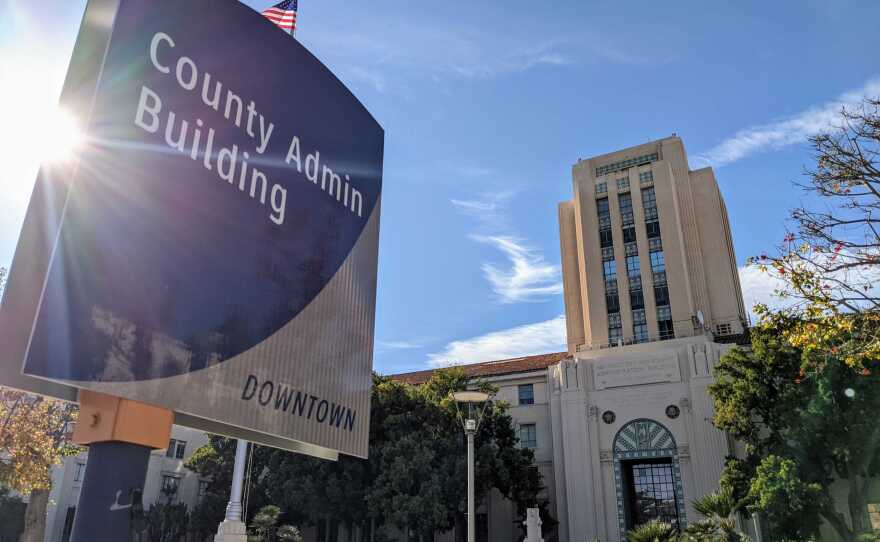UPDATED: 12:49 p.m., Aug. 16, 2021
San Diego County leaders and public health officials Monday recommended that all employers in the county begin requiring COVID-19 vaccines for their employees or require weekly testing for the virus.
The recommendation comes a day before the county will begin collecting vaccination proof from its 18,000 employees before the requirement goes into effect next Monday. County employees unwilling or unable to receive the vaccine will be subject to weekly COVID-19 testing and are required to wear masks while indoors.
Board of Supervisors Chair Nathan Fletcher mentioned the possibility of penalties attached to fraudulent proof but said the county is still in negotiations as to what that might be.
The Delta variant of the virus is considerably more contagious than previous strains and now comprises 95% of the virus' genome, Dr. Wilma Wooten, the county's public health officer, said at a news conference Monday.
"We are in the middle of the surge right now," she said, referring to a spike in coronavirus infections in recent weeks far outpacing last summer's surge and matching the early trajectory of last fall and winter's spike.
"It will get worse before it gets better," Wooten said.
The county is far from the first entity to require proof of vaccination from employees, with the city of San Diego, Scripps Health, Sharp HealthCare and others requiring employees to be inoculated, with few exceptions.
"Scripps is complying with the state mandate that those who have not been vaccinated will need to be fully vaccinated by Sept. 30 or qualify for a religious or medical exemption in order to be employed beyond that date here — or likely at any other health care organization in the state," according to a Scripps statement.
However, Fletcher hopes the weight of the county government — as the fifth-largest employer in the county — will make some hesitant or recalcitrant residents change their minds. He said he had spoken to several large employers who hoped an extra push from the county could allow them to install a similar policy.
"There's a segment of the population out there who are willing (to get the vaccine), but need a nudge," Fletcher said.
He conceded there are also people who will likely never get the vaccination, but said he hoped enough people could become inoculated to dramatically reduce the spread.
In the last 30 days, 92% of all COVID-19 cases have occurred in those not fully vaccinated. Of the remaining 8%, San Diego County Chief Medical Officer Eric McDonald said, few are showing symptoms and those which are showing are relatively mild.
He did encourage those showing any symptoms to get tested as quickly as possible, as many wait for days — meaning if a person is positive, they likely have multiple opportunities to spread the illness.
Supervisor Nora Vargas reminded residents the county has expanded testing locations across the region, so if employees decline the vaccinations, testing can theoretically be an easy and simple process.
Of all those hospitalized in the past 30 days, 98% are unvaccinated, with 13 people fully vaccinated sent to the hospital and 521 of those without the jab have been hospitalized.
While San Diego County is not experiencing the immense strain of other parts of California and other states, Fletcher reminded people to continue to take the pandemic seriously, as many hospitals in the region were facing staffing shortages — at least partially attributed to burnout and fatigue.
"We know the vaccine is the safest and most effective way to avoid becoming sick," he said. "The risk to those fully vaccinated is exceedingly low."







